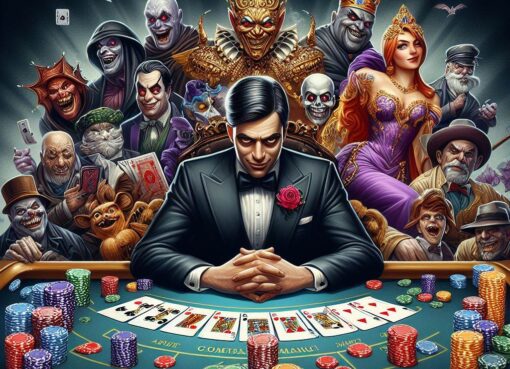The Psychology of Poker: Winning Strategies for Casino Enthusiasts

Poker, at its essence, is a game of skill, strategy, and psychology. While the luck of the draw plays a part, the true art of poker lies in outmaneuvering opponents through psychological mastery and strategic acumen. This article delves into the psychological aspects of poker and outlines winning strategies that can elevate the game of casino enthusiasts from novice to adept.
Understanding Your Opponents Strategies for Casino Enthusiasts
The first step in mastering the psychology of poker is to understand that every player brings a unique psychological profile to the table. Some players may be risk-averse, playing conservatively and only betting on strong hands. Others might be risk-takers, bluffing frequently and playing aggressively. Recognizing these profiles early in the game can provide a significant advantage.
Emotional Intelligence Strategies for Casino Enthusiasts
High emotional intelligence is a hallmark of great poker players. It involves not only managing your own emotions but also reading and influencing the emotions of others. A player who can remain calm under pressure while detecting stress, bluff, or confidence in opponents has a distinct edge. Emotional intelligence also enables players to project false tells intentionally, misleading their opponents.
The Power of Observation Strategies for Casino Enthusiasts
Observant players gather crucial information without needing to engage directly. Paying attention to body language, betting patterns, and even the way players handle their chips can reveal much about their confidence, experience level, and potential hand strength. Observation allows players to make more informed decisions, predict moves, and identify bluffs.
The Art of the Bluff
Bluffing is a psychological tactic used to convince opponents of a falsehood about the strength of one’s hand. Successful bluffing requires understanding the psychology of your opponents, including their current emotional state and potential reactions. A well-timed bluff can turn a weak hand into a winning one, but overuse or predictability can diminish its effectiveness.
Managing Tilt
Tilt, a term used to describe a player’s frustration leading to irrational play, can be a significant psychological hurdle. It often results from bad beats, aggressive opponents, or simply the stress of high stakes. Recognizing the onset of tilt and having strategies to manage emotions can prevent costly mistakes and keep decision-making rational.
Developing a Winning Mindset
A winning mindset in poker is not just about striving for victory in every hand but also about understanding the long game. It involves patience, discipline, and the acceptance that loss is a part of the game. This mindset helps players make strategic decisions, avoid chasing losses, and maintain focus on overall profitability.
Strategic Adaptability
The dynamic nature of poker means that no single strategy is universally effective. Successful players are those who can adapt their strategies based on the flow of the game, the tendencies of their opponents, and their position at the table. Adaptability requires a deep understanding of poker mechanics, a keen sense of observation, and the flexibility to change course as needed.
The psychology of poker is a complex and fascinating aspect of the game that extends beyond mere card play. By developing emotional intelligence, honing observational skills, mastering the art of the bluff, managing emotions, cultivating a winning mindset, and practicing strategic adaptability, casino enthusiasts can significantly improve their performance at the poker table. These psychological strategies, combined with a solid understanding of poker mechanics, can transform an average player into a formidable opponent.


